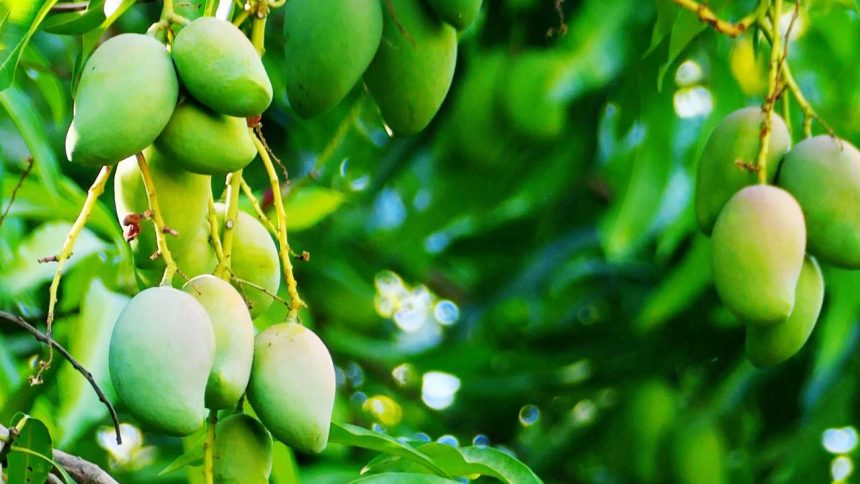I am interested to point out a serious issue that my homeland is facing due to climate change. Despite being a minimal contributor, Pakistan is not immune from its effects. One sector bearing the brunt is the agriculture sector, which faces high risks during the hot summer months and during Monsoon and subsequent flooding. As we all know that one of Pakistan’s agrarian delicacies is its mangoes. Our mangoes are famous across the world for their sweet taste and their diverse variety. I am happy to say that Pakistan boasts one of the largest areas suitable for mango growth in the entire world.
During their flowering stage, mangoes require a suitable climate to grow into juicy fruits. However, increase in temperature is one of the leading causes of preventing these flowers from growing into mangoes. As per experts, Pakistan may lose 40 percent of its total mango production this year, and climatic variants can be the reason. As per available data, about 70 percent of mangoes are produced in Punjab, 29 percent in Sindh, and one percent in Khyber Pakhtunkhwa. However, this figure has now reduced to about 35 to 30 percent in Punjab and less than 20 percent in Sindh.
The hotter the summer, the lesser the yield is, and where there is good yield, the inadequate storage facilities hamper the shelf life of this year’s produce. One of the reasons why Pakistan failed to become a top mango exporter is the lack of processing and storage facilities. I just came to know that mango trees also boast another edge over other trees. They absorb large quantities of carbon dioxide and can help mitigate effects of climate change. We have to understand that out agriculture sector is at risk due to climate change.
I want to urge our government and other stakeholders to act urgently to prevent things from falling apart and to maintain agrarian production at current levels to stop the country from getting into a food crisis. Our country already faces record inflation, and high unemployment rates, and a food crisis could further exacerbate the dire circumstances. Through media, I noticed that a Swedish agriculture expert visited Pakistan to look into agriculture situation here. During his visit, he received briefing on the Green Pakistan Initiative (GPI), which is being carried forward under the auspices of the Special Investment Facilitation Council (SIFC).
The visiting expert was told that the government was transforming 400 acres of barren land in the Cholistan desert to make it conducive for cultivation. The expert expressed his intent to work in the research and development of the agriculture sector, especially as the initiative aims to ensure food security through modern agricultural practices. I am also interested to mention here that the government has agreed to impose more taxes on the agriculture sector under directives of the International Monetary Fund. According to reports, the international lender had asked the government to make the provincial income law tax similar to the federal law.
Therefore, with the government’s approval, agriculture income of more than 600,000 per year would be taxed. Our country is once again vying for a loan program from IMF. While the amount is yet to be finalized, analysts expect it to be between six billion to eight billion dollars, with the program spanning three years. In order to secure the amount, the government has incorporated various provisions laid down by the international lender into its federal budget for the ongoing fiscal year. The imposition of tax on agricultural income is also meant to check another point on the IMF’s checklist.












